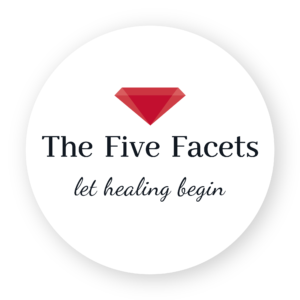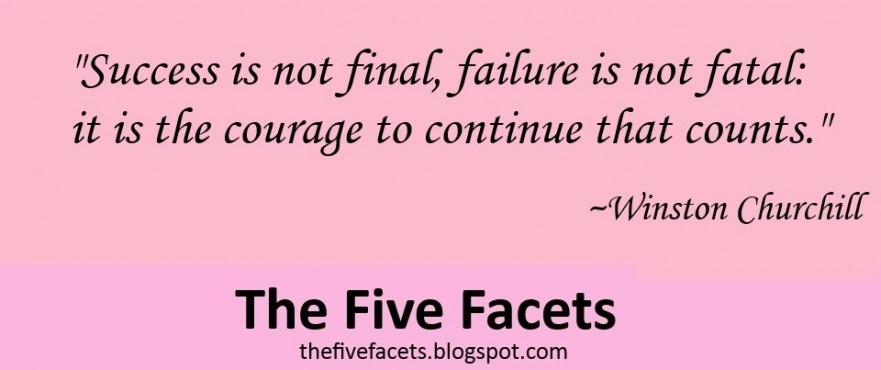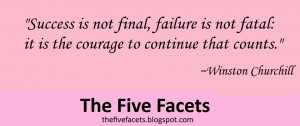Last night I clicked on a link that posed a question like “What’s holding you back from living your dreams?”
I don’t often participate in those types of internet polls but this one drew me in because it was from Tony Robbins.
After a few brief questions something like “Do you make friends easily or do you stand against a wall and observe?,” this is what came flashing across my screen: “Now, based on our responses, it’s extremely likely that the success blocker that’s putting the brakes on your reaching your dream life is a very specific subconscious self limiting belief called, “I’m not worthy.”
I had to chuckle. Didn’t I recently recognize that very thinking within me and write about the value of self-approval?
Uh, huh…somebody cue The Twilight Zone theme tune…
As the little quiz likely showed, there are many reasons people aren’t achieving their goals.
Often times the elements which hold us back are within our power to change, but there are also many factors which are completely out of our control.
As some of you know, Fave is one of millions with an Olympic dream, and is among a fraction of those who might actually make it to that stage.
So many years of blood, sweat, and tears—figuratively and literally—go into the making of an Olympic athlete.
Nutrition, physical and mental health, genetics, knowledge, practice, training equipment and travel and coaches and funds to provide all of those things are vital to an elite competitor’s success.
But sometimes even the best of all of that isn’t enough.
An athlete makes it to a world class competition fit and ready and peaked in her sport.
Maybe it’s the result of a biased judge’s marks, an unexpected injury, the product of an impartial jury’s opinion, some fluke in the rules that alters an outcome, or some type of sabotage (remember Nancy Kerrigan?) that precludes her from the podium.
Regardless, she knows she should be there, but she’s not.
She’s bummed and mad and shaken and frustrated and doubtful if she can continue, if her body will carry on, holding up to the rigors she demands of it.
She might even wonder if she wants to continue on this arduous adventure.
She wonders if she could have done more, if she missed something, if her expectations for herself are reasonable.
Sometimes she might feel as if the very universe that gave her this talent and provided a path for her is now conspiring against her success.
I watch her and my heart breaks a little.
The fixer in me wants to jump up and down and scream and holler at injustice and then it wants to soothe her aching heart by telling her it’s going to be okay, that she’s strong and smart and sassy and she’s going to be able to recover.
But as we all know, no one can fix loss, and the only person who can heal her hurts is she, herself.
Oh, the rest of the world can provide resource and wisdom, tools that she might use to reconcile her pains, but only she can put it into the perspective that suits her.
To that end, what I have to offer are some of the greatest gifts I’ve been given on my own yellow brick road of life, loss, and learning.
This is my humble contribution to her, the one on a path to recovery.
Dear Hopeful,
Though in a different context, I know how it feels to work toward a goal, giving it everything you’ve got, and then to have that objective terminated.
The day my son died, I felt as if all of my hopes and dreams for a future with him had been annihilated.
Though the quests for Gold and Motherhood might seem completely unrelated, what I’ve realized as I’ve been pondering my thoughts for you is this: We are all Olympic hopefuls in this exercise we call Life.
On the most significant platform we have, sometimes we lose and sometimes we win.
Sometimes we fail at the expense of our own mistakes and sometimes we fall short due to some outside influence.
It matters not what vision has been stripped from our future, the questions we ask ourselves are surprisingly, yet understandably, much the same, for the experience of loss is just that.
Loss.
The first step in healing is to honor our grief.
Regardless of the logistics or the nature of our loss, we must mourn that which did not manifest itself in the way we had perceived it should.
That mourning will include Kübler-Ross’ five stages of grief: Denial, Anger, Depression, Bargaining, and Acceptance.
One of the most valuable pieces of her extraordinary work is that there is no rhyme or reason to grief and that it is different for each and every one of us and varies with each and every occurrence.
Know this, Journeyer. Repeat it over and over if you need to. There is no grief formula that you will follow.
There is no right or wrong way to grieve.
Counselor Hank once asked me, “Annah, why are you getting depressed about being depressed?”
Do not apologize or chastise yourself or feel sorry for feeling sorrow.
And when you do begin the berating, for we all do at some point in our bereavement, remind that skull chatter that you are okay, that you’ve been tossed into unknown waters on a journey that has provided neither map nor instruction.
If you feel sad, be sad.
If you feel anger, be mad.
If you need to plead with the universe for answers, then shout your questions out from the bottom of your lungs.
The second step in healing is to accept that we have everything we need to recover.
Once you have decided that Sadness no longer suits you, it’s time to begin mending, moving forward toward the life that you do want.
As you ponder the points of your sorrow, get in touch with your five facets—your academic, emotional, physical, social, and spiritual sides—and hone in on your greatest strengths.
Each of us is born with these traits, Journeyer, born with them, the tools we need to not only survive sorrow, but to triumph over it.
Often, when we look to other people who have overcome similar strife, we compare in ways that strand us on sorrow’s island: She has more money, better doctors or coaches or acquaintances or access…
In reality, Journeyer, she has nothing that you don’t have. It’s just that the details of her resources are different than yours.
If the successful person you are trying to relate to hadn’t tapped into her five facets, hadn’t honed in on those things that motivate and move her, then she, too, would still be sitting on that island, trying to overcome her conflict.
After you’ve digested that, contemplate this: Where is your focus generally directed?
The third step in healing is to tap into and prioritize your facets.
Are you someone who generally craves knowledge and finds answers in data? If so, the academic facet is likely your greatest asset.
Are you someone who often learns something about yourself while reading or listening to others stories? If so, the social facet might be at the top of your list.
I have a friend who recently ran (another) full marathon. The thought of running twenty-point-something miles makes me queasy and light-headed, Journeyers, but she says she does some of her best thinking and has solved some of life’s greatest issues while doing this type of physical exercise.
One interesting point of note is that our conflicts are tied to those same facets.
If you are feeling stress, focus on the source.
If you are worried about what others might think, that is your social facet.
If you are hashing over the logistics of the event, that is your academic facet.
If you are questioning God or fate or the universe as to why certain events transpired, that is your spiritual facet.
Once you have a better understanding of what is motivating your strife, then you are in a position to improve your quality of life.
Healing is, in essence, nothing more than flipping grief on its head.
The fourth step in healing is to do the hard work of recovery.
Healing doesn’t mean that the tragedy or misfortune or loss never existed.
It doesn’t diminish the fact that we don’t like what transpired and it doesn’t dishonor memory or existence.
Healing simply means that we are no longer held back by or tormented by conflict surrounding the loss.
It is simply about a shift in our thoughts and feelings, and it is often about reconciliation between the two.
It’s about change, about breaking out of our comfort zones, those places we’ve believed in and trusted most, if not all of our lives.
Altering our perspectives, finding new information, asking different questions, opening our minds to other possibilities is time consuming, frustrating, back-breaking, and often agonizing work.
I believe the process can be so infuriating because we often don’t know what questions to ask when we are entering new territory, not because we are inadequate or stupid or silly, simply because we don’t know what the options are.
For example, an expert Warren and I were working with failed to fulfill certain promises she’d made and after we expressed our upset, she asked us, “What can I do to make it up to you?”
“We can’t tell you that because we have no clue about the many possibilities that exist within your field. Why don’t you put together a plan and then we’ll go from there.”
Breaking the patterns of behavior and thought within each facet comes with its own set of uncertainties.
I consider my greatest strength to be the social side of me, which means I’m usually connecting with people.
It also means that I’m often sharing my fears, my feelings of failure, and making myself vulnerable.
One of the things I’ve done, however, is to accept that one way I grow and mature is to search for emotional and academic options that exist by networking with others.
I take what I need from others’ experiences and thoughts and assimilate those pieces into my life.
For instance, I used to think that I wanted to change the world, and I do mean The Entire World.
I would dream about ending a universe of suffering and hurt and injustice.
I felt a great sense of frustration and often like a failure as that proverbial ticking clock of calendar years passed by and I wasn’t anywhere near my goal.
“Geez, Annah,” a friend once responded to my lamentations, “even the Bible didn’t do that.”
That’s when I contemplated what I really wanted and challenged myself with this question, What if I were to help only one person in this journey of life, would I be okay with that?
The reply was a resounding Yes.
The final step in healing is to embrace and live what we’ve learned.
Years after I reconciled that internal strife, I stumbled across the quote above, one I included in jars of inspirational messages I gathered and gave out as gifts to family and friends for Mother’s Day.
One of the recipients later returned this slip in a greeting card, an act that signified to me that I had somehow impacted her life.
I leave it hanging on my refrigerator as a daily reminder of my mission.
Just one teeny tiny morsel of another’s insight had made a world of difference for me.
It’s easy enough to fall back into the old habits and ways of thinking that had once comprised our grief, but if we take steps to reinforce and practice these new thoughts and behaviors, then we are better able to ensconce ourselves in their many benefits.
Winston Churchill said, “Success is not final, failure is not fatal: it is the courage to continue that counts.”
Regardless of what’s holding you back from living your dreams, Courage is there, Journeyer, your constant companion as you try to reconcile loss and life…
Yours in healing…



